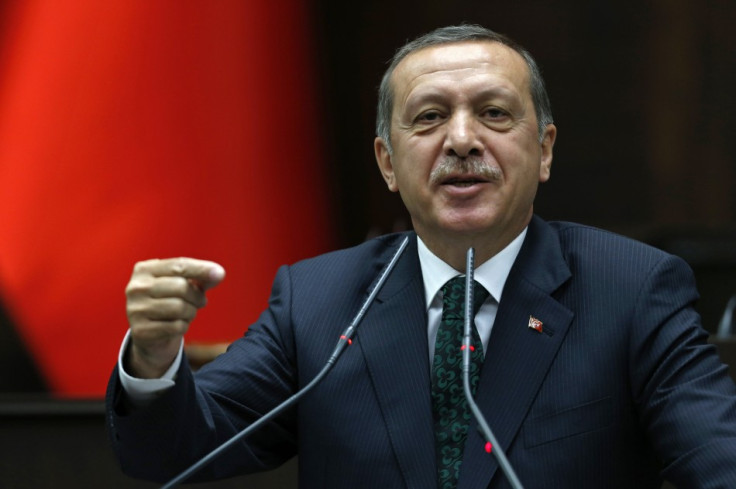Turkey Graft Probe: 350 Police Officers Dismissed
Recep Tayyip Erdogan continues efforts to contain corruption scandal shaking Ankara

The moderate Islamist government of Prime Minister Recep Tayyip Erdogan has continued a purge of the police with the sacking of 350 police officers and chiefs.
A midnight decree by the government was directed at officers involved in the high-level corruption probe that shook the government and included the heads of the financial crimes, anti-smuggling, cybercrime and organised crime units, according to reports.
Erdogan denounced the investigation as a "dirty plot" to bring down his government by Fethullah Gülen, an influential cleric in self-imposed exile in the US.
The reclusive Muslim cleric hit back at what he said was Erdogan's direct attack on his eponymous Gülen movement, which has extensive influence in the Turkish police and judiciary.
Officers in Ankara were either dismissed or reassigned to new roles including traffic duties. Among those reshuffled was Mahmut Azmaz, head of Ankara's anti-riot unit who was accused of using excessive force during anti-government protests in June.
Eighty department directors and other senior officers were affected by the move.
Meanwhile, at least 25 more people including public officials have been held as part of a fruad investigation into Izmir port authorities.
Tensions between Gulen - who commands a global empire of media outlets, private schools and charities - and Erdogan have boiled over in recent months. The Turkish government had announced plans to outlaw private schools, including those run by the Gülen movement.
From his retreat in Pennsylvania, Gülen "strongly denied" allegations that the latest corruption probe was launched as result of a rift between the government and Hizmet (the Service) – another name for his political movement.
The scandal exploded in mid-December with the arrests on corruption charges of 47 high-profile politicians and businessmen, including the sons of three cabinet ministers.
It threatens to shake investor confidence as the lira drops to record lows, inflation rises and growth slows.
© Copyright IBTimes 2025. All rights reserved.




















